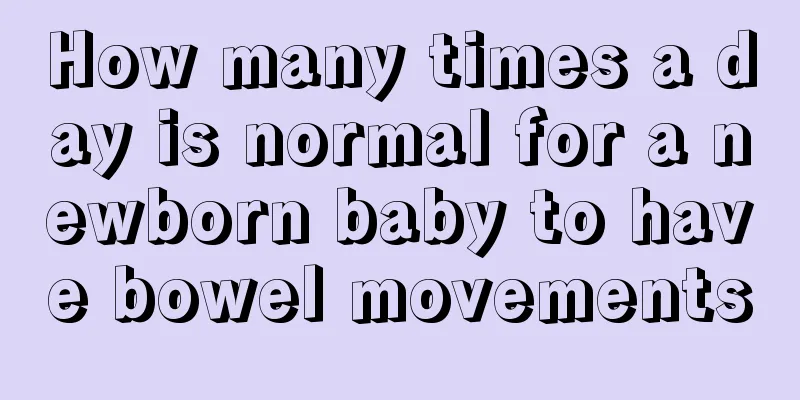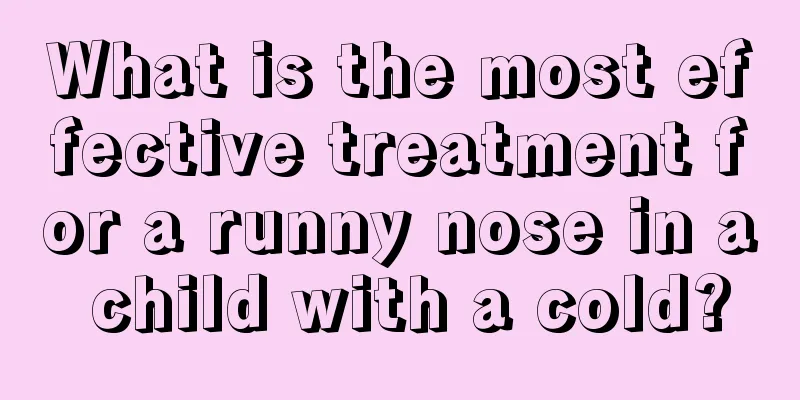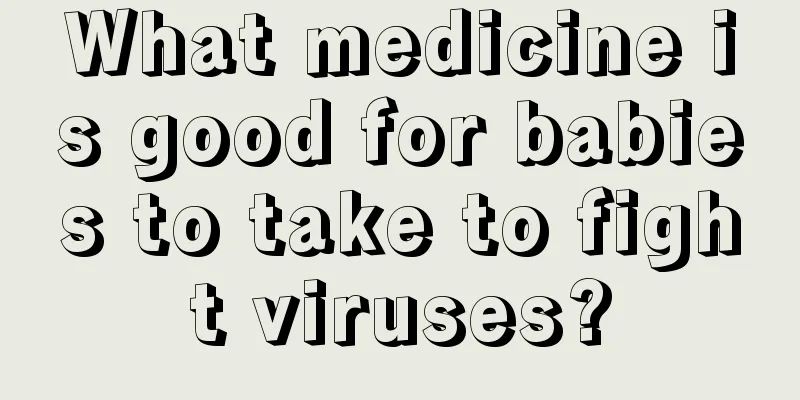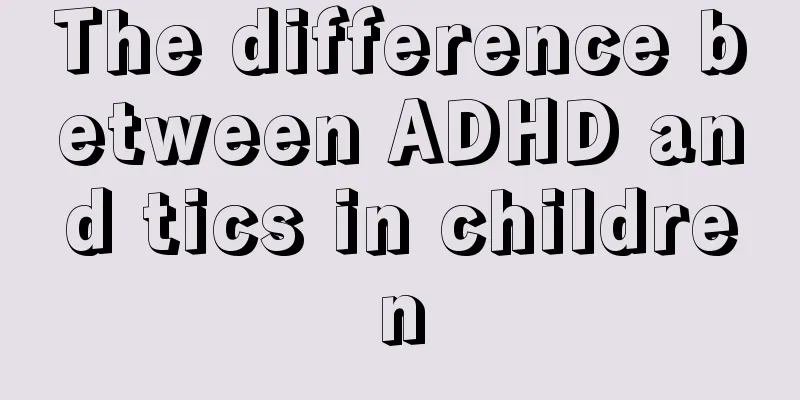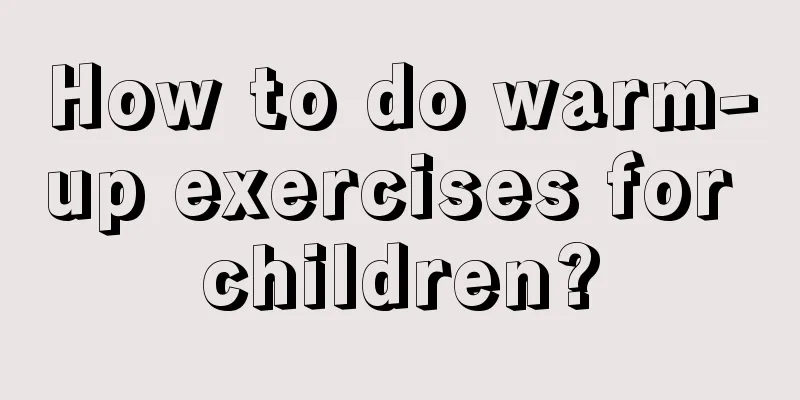The child coughs as soon as he lies down to sleep
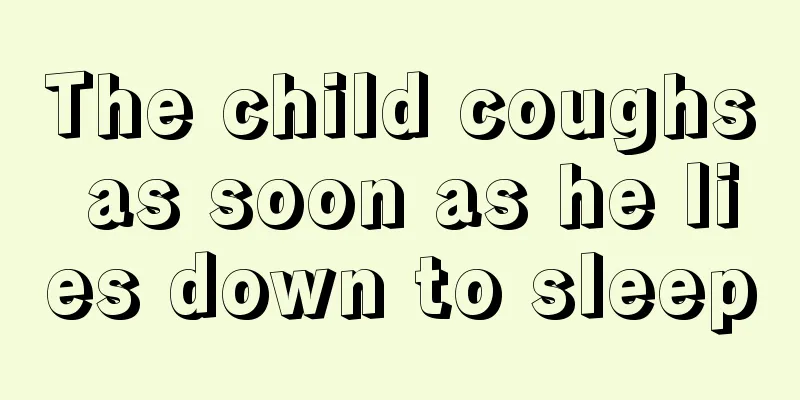
|
Some children cough when they sleep, and they cough as soon as they lie down. Sometimes it may be because the lying posture makes the throat and trachea uncomfortable, so they want to cough. When they cough when lying flat, they will always feel itchy in the throat and want to cough. At this time, if they lie on their side and keep the upper body bent, the symptoms will be alleviated. Then get up and drink some water to moisten the throat and the symptoms will be relieved a lot. So why do children cough as soon as they lie down to sleep? Children are particularly prone to coughing. The first thing a mother should do is not panic. The first step is to determine where the child's cough is coming from. Generally, the early stage of coughing comes from the throat. If you listen carefully to the sound of the cough, it is not coming from the chest, but from the throat. This is generally caused by a cold, mostly pharyngitis, which is what we often call a red throat. At this time, you can use Shuanghua oral liquid or granules. The granules are effective, but bitter. If there is a fever, add antipyretics. If the child has a hoarse throat, add lozenges. The Children's Hospital has special Western medicine lozenges for children, but unfortunately we only used it once and forgot the name. The doctor also said it was useless to remember it because it was not sold outside. However, you can give your child common lozenges on the market (for children over 3 years old, doctors only recommend using lozenges specifically for children under 3 years old), but you must educate your child not to chew them as candy. If it is determined that the child's cough does not come from the throat but goes deeper, it is likely a respiratory tract infection. The depth varies from the upper to the middle to the lower part of the chest. The corresponding medical diagnosis is generally tracheitis, bronchitis, peribronchitis and pneumonia. Among them, tracheitis and bronchitis are upper respiratory tract infections, while peribronchitis and pneumonia are lower respiratory tract infections. Peribronchitis is a stage that progresses very quickly. It may take a day or half a day to transition from bronchitis to peribronchitis and then to pneumonia. Therefore, there are relatively few children who are clinically diagnosed with peribronchitis. Of course, simply listening to the location of the cough cannot be used as a basis for clinical diagnosis of inflammation, but it is important for mothers to determine whether the child's disease is worsening or improving. Coughing, whether for adults or children, actually occurs most often at night, especially when lying down, which is more severe than during the day or when standing. But for children, because they are more active during the day, it is more important to observe their cough at night. After the child lies down, we first check whether she starts coughing as soon as she lies down, or whether she coughs after a while due to other reasons. Some children have blocked noses after lying down. After a while, they feel that the secretions are flowing back into the throat, which causes them to cough. In this case, you need to solve the child's nasal problem first, as it may be rhinitis. After lying down, let the child lie on his side, gently lift up the child's clothes, or leave only cotton underwear. The mother should put her ear to the child's back and listen to the child's breathing. If the respiratory tract is infected, then her breathing will be noisy and messy, and sometimes there will be a ringing sound, just like pulling a bellows, a hissing sound, and sometimes like a cicada chirping, but of course not that loud. These all indicate that the child has a respiratory tract infection and must go to the hospital immediately for anti-inflammatory treatment. Taking cough medicine alone is useless. If the child's wheezing sound is accompanied by a slight wheezing sound (but not the kind of asthma where one can't breathe), then you should quietly listen to her wheezing sound and hear whether the "wheezing" occurs when she exhales or inhales. This is very important for determining wheezing tracheitis, bronchitis and asthma. Generally speaking, wheezing occurs in respiratory tract infections and asthma. Then, if it is expiratory wheezing, it is generally tended to be diagnosed as asthma. If it is inspiratory wheezing, the chance of respiratory tract infection is greater. One mother said that the process was too complicated and tiring, and it would be better to send the baby to the hospital immediately. But there is always a process from the time a child starts coughing to the time he is sent to the hospital. During this process, it is necessary for parents to observe the cough and report it truthfully to the doctor. Because the environment in the hospital is noisy, and doctors are facing many sick children and parents, they don't have the time to listen carefully and repeatedly figure out the symptoms. At the same time, because children encounter the stimulation of cold or hot air on the road, sometimes there is wind, and there will definitely be body movements, so after arriving at the hospital, their breathing is often affected by these changes. When the doctor listens to the stethoscope, he cannot fully know what the child's breathing is like. A responsible doctor will often ask parents about their children's cough, especially night cough, while listening to their heartbeat. Based on the parents' description, the doctor will have more information to judge the child's condition. Especially when the child is panting. Because some children are no longer breathing when they are brought to the hospital, doctors have no way of determining what the wheezing is like and can only ask the parents. Besides, except for the children who are hospitalized, all the sick children are cared for at home. During the nursing process, strict attention must be paid to whether the child's condition is under control or developing further. Listening to the child's cough is very important for judgment. Sometimes, even if you cough less frequently, don’t think it means it’s definitely getting better. If the cough becomes deeper, it’s possible that only the cough suppressant is effective, but the inflammation is not under control and may often break out and become more difficult to treat. Based on these family judgments, when going to the hospital, the doctor will use routine blood tests to determine whether there is inflammation. If necessary, a little saliva should be used to test for mycoplasma infection. In recent years, mycoplasma respiratory infections have become a very common phenomenon. If it is a mycoplasma infection, the medication used is erythromycin. Remember to take it for 3 weeks to completely cure it. Because mycoplasma is particularly prone to recurrence. The side effect of erythromycin is that the urinary nervous system is temporarily affected. The child may wet his pants or bed, etc., and the condition will recover about 2 weeks after stopping the medication. Just now a mother commented below saying that she is now using azithromycin because erythromycin has relatively serious side effects. I added here. However, the drugs commonly prescribed by the specialist clinic of Beijing Children's Hospital for the treatment of mycoplasma infection are Rolide (probably still a roxithromycin-type drug, but it is imported and has better efficacy than other roxithromycin drugs) and Clarithromycin. Azithromycin has been prescribed, but not very often. According to the experts in the specialist clinic and the doctor of pharmacy, azithromycin is a very strong drug with a very broad spectrum, so use it as little as possible. Regarding the knowledge about the efficacy and side effects of the medicine, I am asking someone to consult pharmaceutical experts and will post the answers once I get them. In terms of medication, when doctors prescribe medicine, if it is confirmed that it is a respiratory infection, they will prescribe an anti-inflammatory drug and a cough suppressant. Cough suppressants can be either Chinese or Western medicine, while anti-inflammatory drugs are generally Western medicine. The doctor explained that anti-inflammatory drugs are for treating the root cause, while cough suppressants are for relieving the symptoms of a child's cough. Because coughing will make children feel very uncomfortable and even give them a headache. However, if the child is only given cough suppressants without anti-inflammatory drugs, and the child has inflammation, the child's cough symptoms may be alleviated within a certain period of time. However, if the inflammation is not controlled and continues to develop, there will be a sudden outbreak, and the disease will develop from tracheitis to bronchitis, and even to peribronchitis or even pneumonia. If you feel that your child's cough comes from the chest rather than the throat, it is recommended that you go to the hospital for a check-up. |
<<: What color is jaundice poop?
>>: What are the causes of fever in children?
Recommend
Child fell off the sofa
In daily life, some bumps and bruises are hard to...
Myelin development retardation in children
Delayed myelin development in children is general...
What to do if your child doesn't eat well
Every parent hopes that their children can eat we...
What to do if your four-month-old baby has bronchitis and cough
Due to the fragility of children's bodies, pa...
Are children's mosquito coils harmful to babies?
In summer, flies and mosquitoes will multiply in ...
What should I do if my newborn baby has not had a bowel movement for four days?
The body functions of a newborn baby are still un...
What are the early symptoms of cerebral palsy in children?
Cerebral palsy is a relatively serious disease. T...
At what age should children receive vaccinations?
Many children need to be vaccinated after they ar...
How to treat white spots on baby's lips
The whiteness of the inside of the baby's lip...
Why do baby's nails fall off?
Some parents find that their baby's nails are...
How many months does the baby crawl?
In fact, mothers are very worried about their chi...
What is the cause of anal prolapse in children?
The physical health of children is one of the thi...
Lutein Supplement for Children
Lutein is present in large quantities in many fru...
Children's hives
Compared with adults, children are not only very ...
What causes dark circles under boys' eyes?
Nowadays, more and more people have dark circles ...
